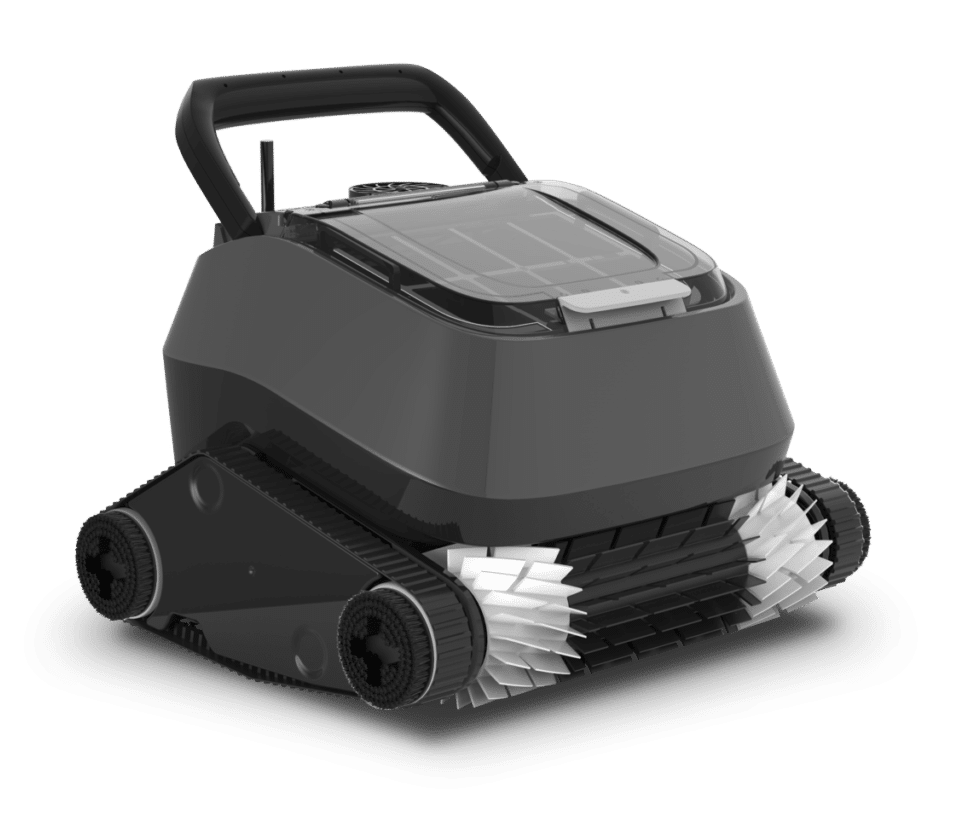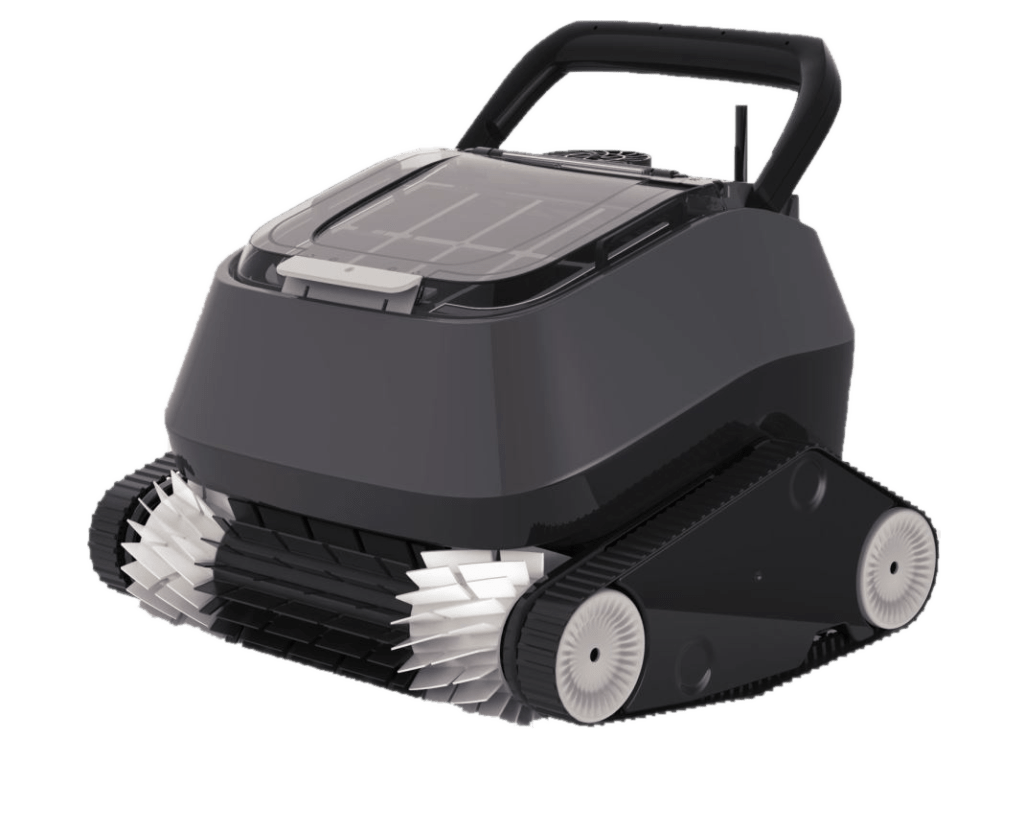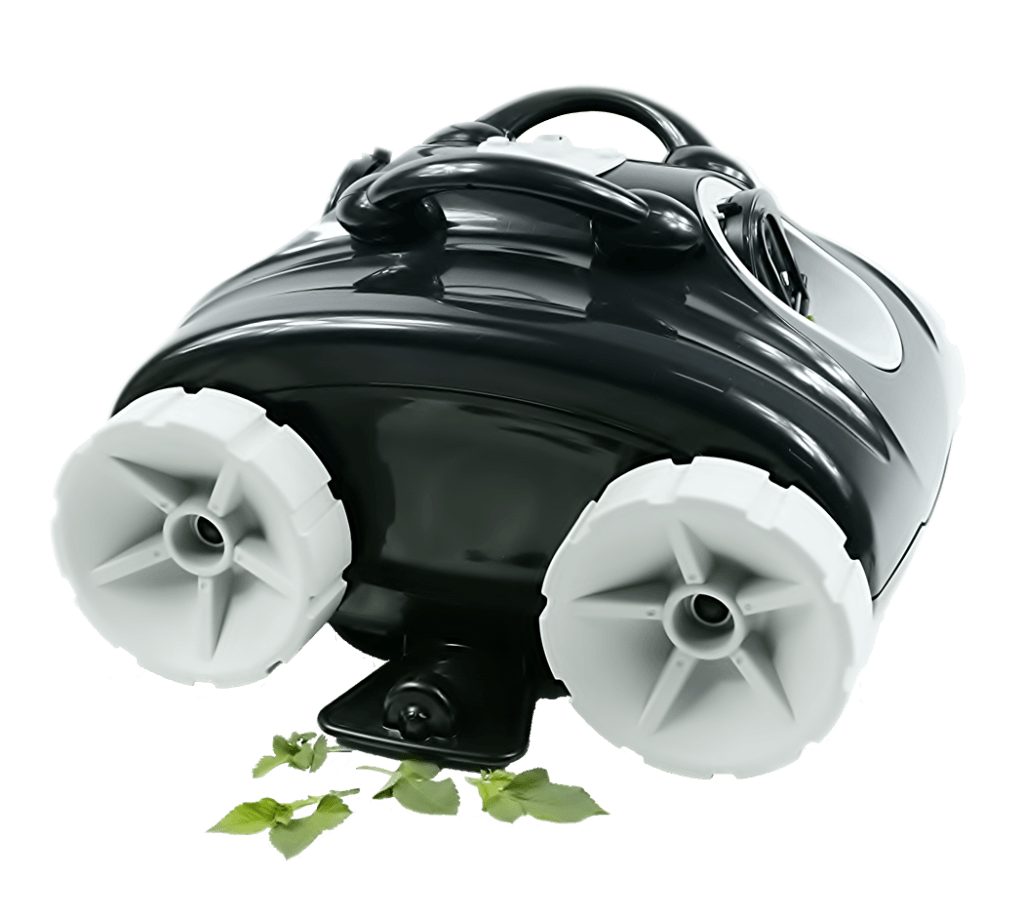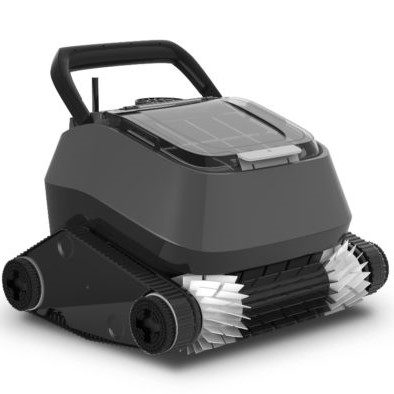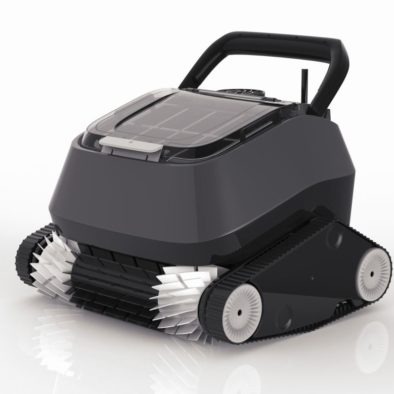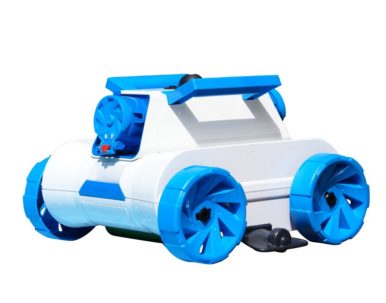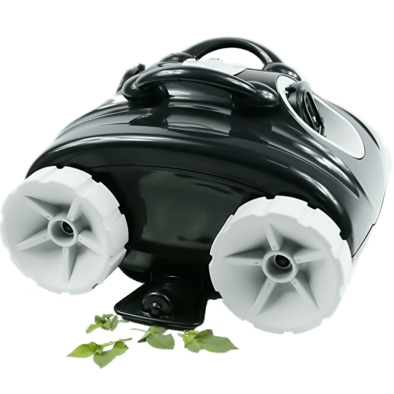8STREME swimming pool robots
Say hello to the future!
OUR POOL ROBOTS
Discover a new generation of innovative pool cleaners, more efficient and more economical.
DISCOVER THE RANGE
ROBOT 7320
Our top-of-the-range model, bottom + sides and side brushes
The 7320 robot is equipped with all the latest technology, including FOCUS FLOW suction, which concentrates all the suction power to guarantee perfect cleaning. Designed for pools up to 11m x 5.50m and 2.50m deep, the machine has a large-volume basket. With its soft brushes, it will remove any impurities from the floor, walls or waterline. Compared with the 7310 model, the 7320 robot has a longer cable, 2 cleaning cycles (1 hour or 3 hours), side brushes and a basket with improved filtration finesse.
ROBOT 7310
For cleaning the bottom and sides
The 7310 robot is equipped with all the latest technology, including FOCUS FLOW suction, which concentrates all the suction power to guarantee perfect cleaning. Designed for pools up to 10m x 5m and 2.50m deep, the machine has a large-volume basket. With its soft brushes, it will get rid of any impurities on the floor, walls or waterline.
ROBOT 5310
Our top-of-the-range jet-propelled models
The 5310 robot is the top-of-the-range of our jet-powered models. It's equipped with powerful motors and side extensions that allow you to vacuum a total width of 45cm in each pass. It has a large-capacity bag and our Focus Flow technology for concentrated suction. The 5310 robot is designed for pools with flat bottoms and gentle slopes up to 10m x 5m.
ROBOT 5222
The perfect model for cleaning flat floors up to 8m x 4m
The 5222 robot is equipped with brushless motors, side extensions for vacuuming a total width of 40cm at each pass, an impurity collection basket and our Focus Flow technology for concentrated suction. The 5222 robot is designed for flat-bottomed pools up to 8m x 4m.
ROBOT 5200-J2X
Our most economical model
The 5200-J2X robot is our most economical model. It is perfectly suited to freestanding and tubular pools. It is an effective complement to pool filtration, recovering impurities before they deteriorate and affect water quality. The 5200-J2X robot is designed for small flat-bottomed above-ground pools up to 4.50 m.
A New Generation of Robots
The 5200-J2X robot is our most economical model. Perfectly suited to freestanding and tubular pools, it complements pool filtration by collecting impurities deposited on the ground before they deteriorate and disturb water quality.
Focused suction FOCUS FLOW
All our robots are equipped with this technology. Most robots have a diffuse suction system, requiring very strong suction and therefore high energy consumption to remove impurities. FOCUS FLOW suction focuses suction on a narrow band, giving very strong suction that requires less energy.
NO-TWIST swivel
NO-TWIST technology is fitted to the 5210-J200, 5200-LUNA 10 and 7310 models. The NO-TWIST floating swivel connector limits the twisting of the robot's power cable. The cable becomes less tangled and the robot can reach different points in the pool without being restricted by its tangled cable.
Fine filtration kit
All our models can be fitted with an optional fine filtration kit. This disposable filter is inserted into the robot's bag or basket and improves the fineness of filtration if you occasionally have fine particles at the bottom of the pool.
LED diagnostic system
The 5210-J200, 5220-LUNA10 and 7310 models are fitted with LEDs whose status makes it easy to diagnose any problems, such as a loose cable.
Discover a new generation of innovative pool cleaners, more efficient and more economical.
Our innovations have just one aim
Creating high-performance robots that are affordable both to buy and to maintain.
Economic
Lightweight and equipped with our FOCUS FLOW technology, 8STREME robots consume very little energy. So you save twice: at the time of purchase, thanks to the excellent quality/price ratio of our products, and in running costs, thanks to low power consumption.
High-performance and reliable
Entirely focused on performance, 8STREME robots are also designed to be reliable and as simple as possible.

